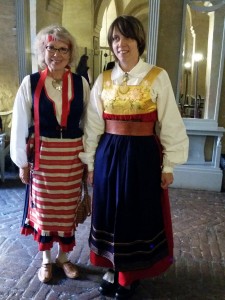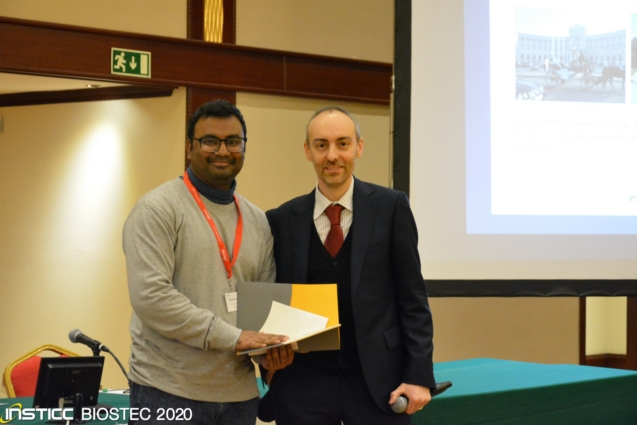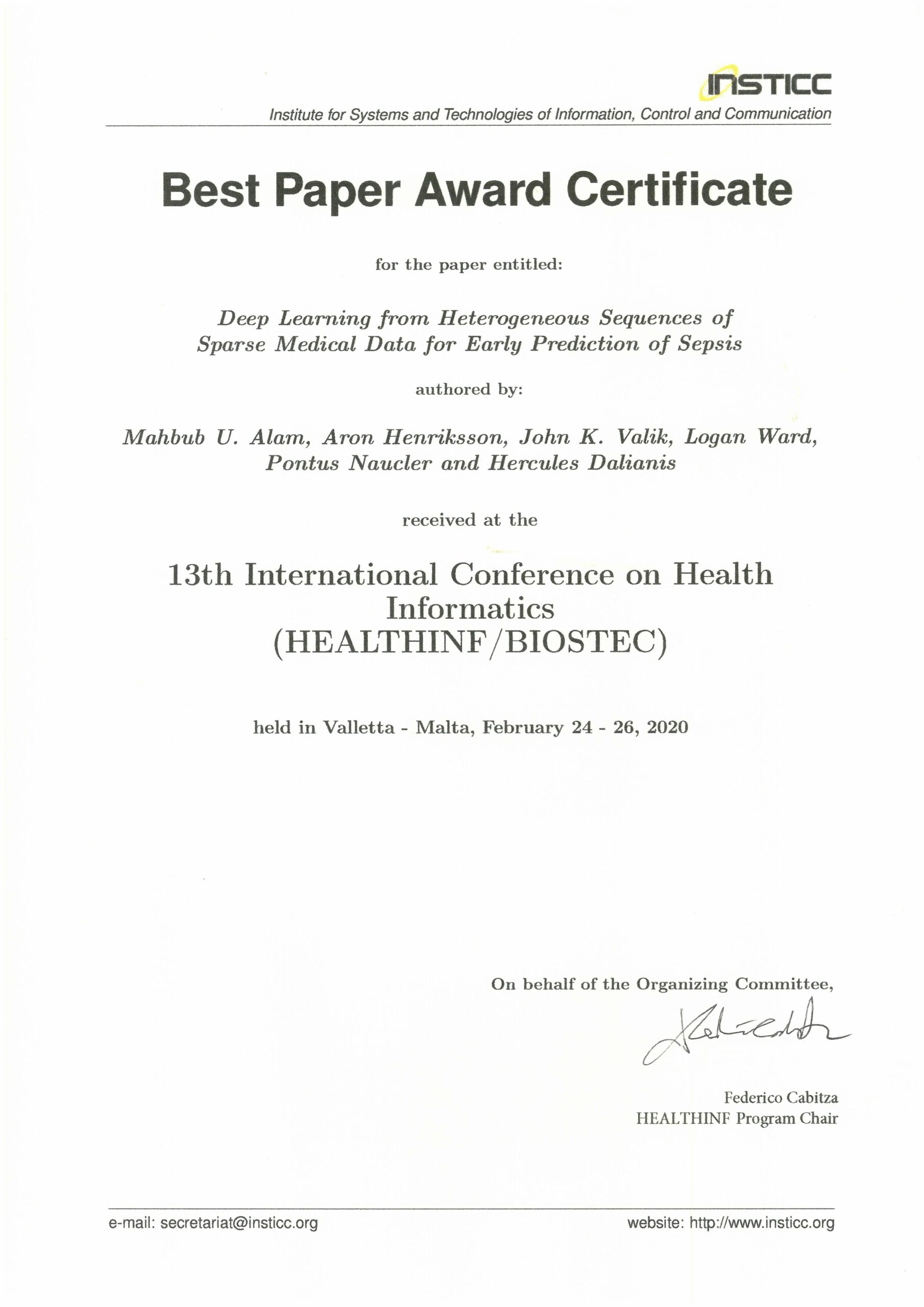According to ResearchGate (achieved on April 1, 2020) (https://www.researchgate.net/profile/Lazar_Rusu/achievement/5eabcb74b49c1519340fadc0), Professor Lazar Rusu’s research items were the most cited research items from his department (Department of Computer and Systems Sciences at Stockholm University).
PhD Student Mahbub Ul Alam Received the Best Paper Award at BIOSTEC HEALTHINF 2020
Hello Everyone,
Greetings. I hope you are well. I would like to share some very good news with you.
I presented a research paper entitled ‘Deep Learning from Heterogeneous Sequences of Sparse Medical Data for Early Prediction of Sepsis‘ at the 13th International Conference on Health Informatics (HEALTHINF), Malta, Valletta, 24-26 February 2020. HEALTHINF is part of BIOSTEC, the 13th International Joint Conference on Biomedical Engineering Systems and Technologies. It was organized by the Institute for Systems and Technologies of Information, Control and Communication (INSTICC).
The paper won the HEALTHINF 2020 Best Paper Award. The decision criterion considered both the paper quality (assessed by the Program Committee), and the oral presentation quality (feedback given by session chairs at the conference venue). Overall it was an enjoyable experience, and I learned a lot from all.
Want to know more about the paper or sepsis in general? Please check out the following presentation video I made!
Abstract:
Sepsis is a life-threatening complication to infections, and early treatment is key for survival. Symptoms of sepsis are difficult to recognize, but prediction models using data from electronic health records (EHRs) can facilitate early detection and intervention. Recently, deep learning architectures have been proposed for the early prediction of sepsis. However, most efforts rely on high-resolution data from intensive care units (ICUs). Prediction of sepsis in the non-ICU setting, where hospitalization periods vary greatly in length and data is more sparse, is not as well studied. It is also not clear how to learn effectively from longitudinal EHR data, which can be represented as a sequence of time windows. In this article, we evaluate the use of an LSTM network for early prediction of sepsis according to Sepsis-3 criteria in a general hospital population. An empirical investigation using six different time window sizes is conducted. The best model uses a two-hour window and assumes data is missing not at random, clearly outperforming scoring systems commonly used in healthcare today. It is concluded that the size of the time window has a considerable impact on predictive performance when learning from heterogeneous sequences of sparse medical data for early prediction of sepsis.
Promovering och utdelande av pris i vackra folkdräkter
Docent Sirkku Männikkö Barbuti och dr. Maria Skeppstedt blev hyllade på Stockholms universitets Installations- och promoveringshögtid i Stockholms Stadshus fredagen den 25 september 2015.
Docent Sirkku Männikkö Barbutiu fick pris som årets lärare 2015 och dr. Maria Skeppstedt blev promoverad och fick en lagerkrans.
 Sirkku i folkdräkt från Karelen och Maria i folkdräkt från Vingåker, Södermanland, (foto Mia Kvist)
Sirkku i folkdräkt från Karelen och Maria i folkdräkt från Vingåker, Södermanland, (foto Mia Kvist)
Stort Grattis!
Hercules
Best Paper Award
The paper ”Capability Driven Development – an Approach to Support Evolving Organizations” written by Janis Stirna, Janis Grabis, Martin Henkel and Jelena Zdravkovic has been awarded for being among the best papers in the Practice of Enterprise Modelling (PoEM) conference 2012. The paper describes how the concepts of goals, key performance indicators, capabilities, capability context and capability delivery patterns can be used to integrate organizational capability development with IS development.
Paper nominated for the “Best Paper” award at the Americas Conference of Information Systems (AMCIS 2011) Detroit, Michigan, USA, 4-7 August, 2011
The paper named “Critical Success Factors Framework for Implementing Effective IT Governance in Public Sector Organizations in a Developing Country”, written by Edephonce Nfuka and Lazar Rusu was nominated among other 10 papers for the “best paper” award at the Americas Conference of Information Systems (AMCIS 2011) held in Detroit, Michigan, USA. The paper was nominated out of 400 papers accepted for presentation and publication in the conference proceedings. The Americas Conference of Information Systems is among the 31 conferences in Information Systems area that is ranked “A” out of 244 (68-B and 145-C) according to Australian Research Council: http://lamp.infosys.deakin.edu.au/era/?page=cfordet10&selfor=0806
For more information about our paper published in the AIS Electronic Library please access the following link: http://aisel.aisnet.org/amcis2011_submissions/365/
Stewart Kowalski as one of Sweden’s best IT security experts
SEC lab warmly congratulates Stewart Kowalski who has been ranked in the top 10 of Sweden’s best IT security experts by Computer Sweden. Stewart has a vast experience as a security and risk manager at Ericsson, security architect at Huawei, associate professor in the Department of Computer and System Sciences at Stockholm University and in participation, together with FOI, in multiple research projects focused on information security in the public sector.
See the entire list of Sweden’s best security experts at Computer Sweden.
Best Paper Award at ER’09 for Paper on Anchor Modelling

We got the best paper award at The 28th International Conference on Conceptual Modeling (ER’09)! Lars Rönnbäck who presented the paper is shown above receiving the award.
Anchor Modeling – An Agile Modeling Technique using the Sixth Normal Form for Structurally and Temporally Evolving Data
By: Olle Regardt, Lars Rönnbäck, Maria Bergholtz, Paul Johannesson, Petia Wohed (Affecto and DSV, SU/KTH, Sweden)



